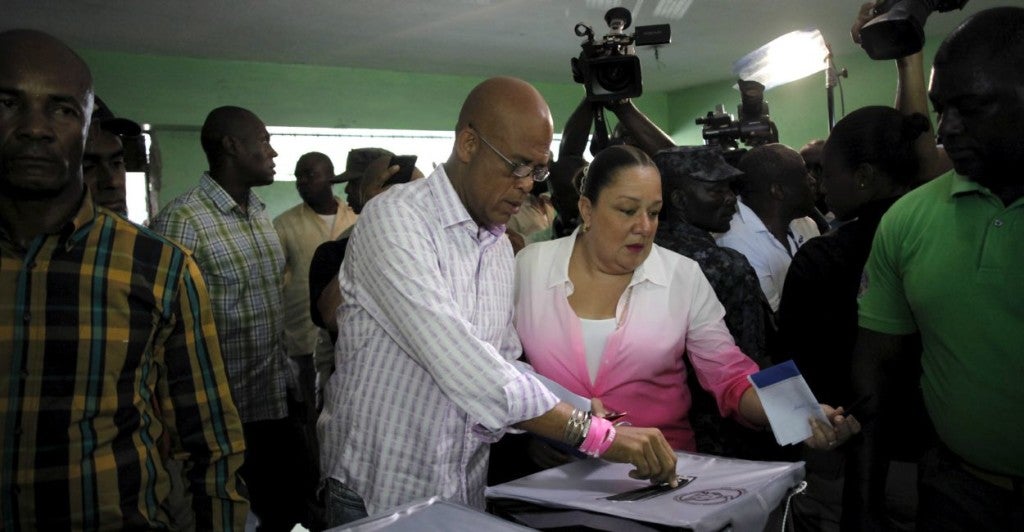Haiti finally held legislative elections last month.
As Jacky Charles of the Miami Herald reported, they were “violent” and “chaotic.” But at least they happened.
President Michel Martelly, in office since 2011, has weakened Haiti’s fragmented institutions and heightened political instability. He is surrounded by a network of friends and aides who, according to the New York Times, “have been arrested on charges including rape, murder, drug trafficking and kidnapping[.]”
Martelly had refused to schedule legislative elections and left most seats in Parliament vacant for years.
He finally did so, a year and a half after President Obama and Secretary John Kerry asked him to when Martelly met with them in February 2014.
Two days after that Oval Office meeting, Daniel Dorsinvil, a prominent defender of human rights, and his wife were murdered in Port-au-Prince.
A popular musician in Haiti who performed under the stage name of “Sweet Micky,” Martelly’s son, and Martelly’s wife have been investigated in the past by Haitian authorities for “crimes including abuse of authority, money laundering, and squandering public funds.”
Haiti scores among the lowest in the world on the Transparency International Corruption Perceptions Index and the World Bank’s Doing Business Survey.
Haiti’s rank in The Heritage Foundation/Wall Street Journal’s annual Index of Economic Freedom has actually improved somewhat since Martelly took office.
But that’s mostly because more than 90 percent of the government’s budget has come from Venezuela’s Petrocaribe, and foreign aid has been pouring in for reconstruction as Haiti continues to recover from the devastating 2010 earthquake.
Extreme poverty, weak government institutions, and violent crime are still huge problems in Haiti.
Let’s hope the 2015 presidential election, if it is completed successfully this fall, brings to power new leadership—honest and competent leadership—that the Haitian government so sorely needs.
